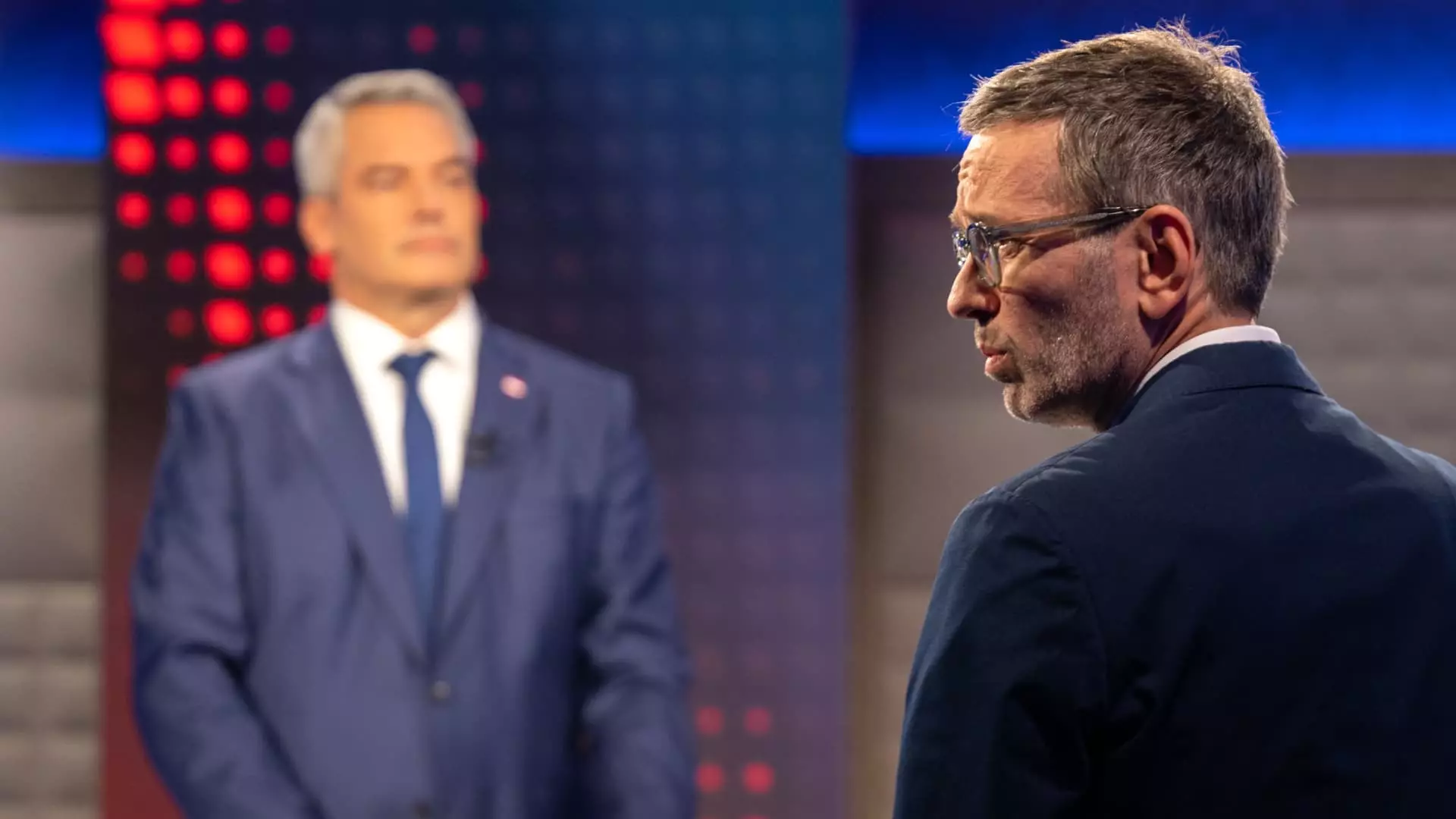Austria’s political arena is currently witnessing a dramatic shift, marked by the rising prominence of the far-right Freedom Party (FPO) under the leadership of Herbert Kickl. The approaching parliamentary elections serve as a crucial test of public sentiment, as opinion polls indicate an unprecedented closeness in the race among major political players. Kickl’s determination to seize victory has stirred discussions about the implications of a far-right ascendance in a nation with a complex socio-political history. This article seeks to delve deeper into the motivations, strategies, and potential outcomes surrounding this election, while also examining the broader European context in which these events are unfolding.
Herbert Kickl’s campaign has predominantly centered on the issue of immigration, leveraging public anxiety surrounding the ongoing migration crisis to bolster support for his party. In a country where inflation has outpaced the European Union’s average, the FPO’s message resonates with many voters frustrated by economic uncertainty. Kickl’s assertive rhetoric, promising a “Fortress Austria” to restrict migration and revisiting asylum policies, taps into a growing sentiment of nationalism that is becoming increasingly common across Europe. This focus on immigration and national identity is not merely a campaign strategy but appears to reflect a significant shift in the Austrian electorate’s priorities, raising concerns about inclusivity and social cohesion moving forward.
Chancellor Karl Nehammer’s Austrian People’s Party (OVP), while trailing in some polls, is engaged in strategic repositioning as it seeks to capture centrist voters who might feel alienated by Kickl’s more extreme views. Nehammer’s self-portrait as a statesman contrasts sharply with the image of Kickl as a divisive figure. By underscoring his commitment to stability and a moderate political discourse, Nehammer attempts to differentiate himself from an FPO that he labels as “extremist.” This framing not only seeks to attract hesitant voters but also firmly places the OVF as a bulwark against radical shifts in governance. Nonetheless, the challenge lies in the effectiveness of this approach amidst a potentially polarized electorate that may favor straightforward, populist messaging.
Regardless of the electoral outcome, it is anticipated that neither the FPO nor the OVP will secure an absolute majority, necessitating coalition-building to ensure governance. This prospect raises critical questions about the nature of potential alliances and the impact those partnerships could have on Austria’s political landscape. The FPO’s apparent reliance on the OVP for coalition support might bind it to a more moderate agenda than its leadership expresses in campaign rhetoric. Conversely, an OVP-FPO coalition could mark a significant change in Austria’s approach to immigration and economic policies, aligning more closely with the nationalist and protectionist tendencies that Kickl has championed.
The outcome of Austria’s elections extends beyond national borders, echoing a broader trend of right-leaning parties gaining traction in multiple European countries. The rise of populism has repercussions not just for domestic policies but also for the European Union’s collective decision-making processes, especially regarding immigration, fiscal strategies, and social policies. The situation in Austria could serve as a bellwether for similar movements in neighboring nations and potentially reshape the political discourse within the EU.
As Austria approaches this critical parliamentary election, the stakes are undeniably high. Herbert Kickl’s FPO is on the cusp of a potential historic win that could redefine the political landscape of the nation. Meanwhile, Chancellor Nehammer’s OVF vies to maintain a centrism that appeals to voters wary of radical changes. The electorate stands at a crossroads, where decisions made on election day will resonate widely, influencing not only the future of Austrian governance but also the nature of Europe’s political trajectory in the years to come. The world will be watching closely, aware that Austria’s elections could serve as a pivotal moment in the evolving narrative of European politics.


Leave a Reply